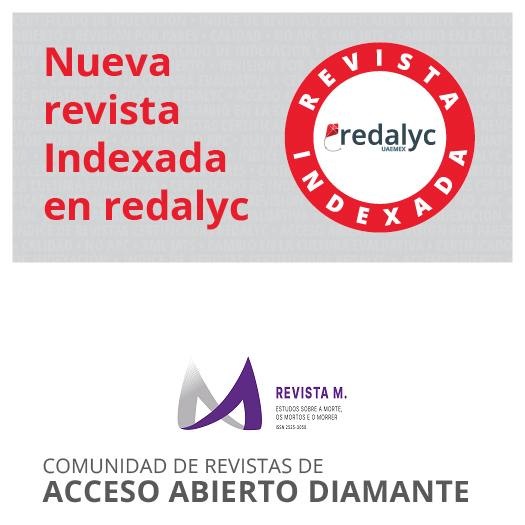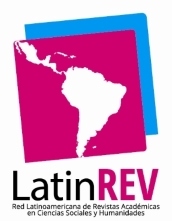Ethnography and Ethics in Studies on Death and Dying
DOI:
https://doi.org/10.9789/2525-3050.2022.v7i13.112-126Keywords:
Death, Dead, Dying, Ethnography, Research ethicsAbstract
In this article, we collect studies on death and dying that use ethnography as a primary analysis method to show how the problem of research ethics increasingly influences the relationship between death and ethnography. First, we review late 19th century studies. Then, we analyze these developments in the first disciplinary manuals and in the systematic ethnographies that approached the problem to analyze other spheres of daily life. We also show the main interests of the first studies devoted entirely to this axis and the works that gave name to this research field. Current studies highlight research as an event that is co-constructed with the interlocutors and raises the dangers of methodological extractivism, although there is still a particular imaginary about the harmlessness of ethnography. From our perspective, ethnographic studies on death cannot avoid asking about the ethical questions surrounding the investigation.
Downloads
References
Actis, G. & Carlino, L. (2017) Plan de Gestión de Datos en CONICET: análisis, experiencia y desafíos. VII Conferencia Internacional sobre Bibliotecas y Repositorios Digitales y XII Simposio Internacional de Bibliotecas Digitales. Universidad Nacional de La Plata.
Ameigeiras, A. (2006). El abordaje etnográfico en la investigación social. En I. Vasilachis de Gialdino (Coord.). Estrategias de investigación cualitativa (pp. 107-151). Barcelona: Gedisa.
Arazandi, T. & de Hoyos Sainz, L. (1917). Etnografía. Sus bases, sus métodos y aplicaciones. Madrid: Biblioteca Corona.
Aredes, J. de S. et al. (2017). Reflexões sobre um fazer etnográfico no pronto-socorro. Cadernos de Saúde Pública, 33 (9), 9-12. https://doi.org/10.1590/0102-311x00118016. PMid:28977277
Armendariz Dyer, M. J. (2018). “Thou Shalt Not Die in This Place”: An Ethnomethodological Approach to an Ecuadorian Hospice Through Symbolic Interactionism. Omega. Journal of death and dying, 82 (2), 278–293. https://doi.org/10.1177/0030222818810042. PMid:30426829
Asociación Médica Mundial (2013) Principios Éticos para las investigaciones médicas con seres humanos. Asamblea General. https://www.wma.net/es/policies-post/declaracion-de-helsinki-de-la-amm-principios-eticos-para-las-investigaciones-medicas-en-seres-humanos/
Association of Internet Researchers. (2019) Internet research: ethical guidelines 3.0. https://aoir.org/ethics/
Bendann, E. (1930) Death customs. An analytical study of burial rites. London: Kegan Paul, Trench, Truber & Co. Ltd.
Bover, T. (2019) Un día a los tiros: acceso y confianza en una investigación sobre policías. Publicar, 17 (27), 12-22.
Braun, V. & Clarke, V. (2020, August 12) One size fits all? What counts as quality practice in (reflexive) thematic analysis? Qualitative Research in Psychology, 18 (3), 1–25. https://doi.org/10.1080/14780887.2020.1769238
Brulé, E. & Finnigan, S. (2020, April 22). How to do a Thematic Analysis. UsabilityGeek. https://medium.com/usabilitygeek/thematic-analysis-in-hci-57edae583ca9
Calandrón, S. (2019). Presentación del dossier “Problemas éticos de la investigación etnográfica”. Publicar, 17 (27), 8–11.
Carlini Comerci, S. & Martínez, B. (2019). El campo burocrático del anonimato: agentes, instituciones y recorridos del cuerpo muerto N.N. en Tres de Febrero y San Martín (Provincia de Buenos Aires, Argentina). Revista M: estudos sobre a morte, os mortos e o morrer, 4 (7), 344-377. https://doi.org/10.9789/2525-3050.2019.v4i7.142-161
Dumiak, M. (2018, May 16) Interpol’s New Software Will Recognize Criminals by Their Voices. IEEE Spectrum: Technology, Engineering, and Science News. https://spectrum.ieee.org/interpols-new-automated-platform-will-recognize-criminals-by-their-voice#toggle-gdpr
Durkheim, É. (1897/2006). El suicidio. Buenos Aires: Miño y Dávila.
Fasano, Patricia. El trabajo de campo etnográfico. Cuando la metodología socorre a la ética. Publicar.Buenos Aires, v. 17, n. 27, p. 23–33, 2019. Disponible en: https://ppct.caicyt.gov.ar/index.php/publicar/article/view/17388. Acceso en: 14/03/2021.
Flores Martos, J. A. & Abad Gonzalez, L. (Coord.). (2017). Etnografías de la muerte y las culturas en América Latina. Cuenca: Ediciones de la Universidad de Castilla-La Mancha.
Gaete Ortega, D.; Papathanassoglou, E. & Norris, C. (2020). The lived experience of delirium in intensive care unit patients: A meta-ethnography. Australian Critical Care, 33 (2), 193–202. https://doi.org/10.1016/j.aucc.2019.01.003. PMid:30871853
Gayol, S. & Kessler, G. (2011). La muerte en las ciencias sociales: una aproximación. Persona y Sociedad, 25 (1), 51-74.
Gazzotti, L. (2016) Ética profesional y antropología argentina. Reflexiones en diálogo. Avá, 28, 73-99.
Giampaoli, M. (2019) L’islam tropical face à la mort. Une ethnographie du cimetière musulman de Guarulhos (São Paulo). Remmm. Revue des mondes musulmans et de la Mediterranèe, 146, 121–138. https://doi.org/10.4000/remmm.13712
Godelier, M. (Comp.). (2014). La mort et sous au-delà. París: CNRS Éditions.
Gómez Ruiz, S. (2013). “Sí, me he sentido triste, pero no se lo puedo decir”: la reflexividad etnográfica en la investigación sobre emociones de La muerte con niños y niñas de Sumapaz en contexto de (pos) conflicto. Antípoda. Revista de Antropología y Arqueología, 16, 137–156. https://doi.org/10.7440/antipoda16.2013.07
Goodwin-Hawkins, B. & Dawson, A. (2017). Life's end: Ethnographic perspectives. Death Studies. Philadelphia, 42 (5), 269-274. https://doi.org/10.1080/07481187.2017.1396394. PMid:29265962
Goody, J. (1962). Death, Property and the Ancestors: A Study of the Mortuary Customs of the LoDagaa of West Africa. Stanford: Stanford UniversityPress.
Guber, R. (2001). La etnografía. Método, campo y reflexividad. Buenos Aires: Norma.
Hertz, R. (1917/1990). La muerte. La mano derecha. México: Alianza editorial.
Hidalgo, C. (Comp.). (2010). Etnografías de la muerte: rituales, desapariciones, VIH-SIDA y resignificación de la vida. Buenos Aires: Ed. Ciccus-CLACSO.
Hine, C. (2004). Etnografía virtual. Barcelona: UOC.
Humphreys, H. & King, H. (Eds.). (1981). Mortality and inmortality: The anthropology and archaeology of death. London: Academic Press.
Irrazábal, G. (2015). La autonomía es pecado: Dios da la vida, Dios la quita. La decisión ante la muerte como problema social. Revista Patagónica de Bioética, 2 (3), 58-70.
Kobelinsky, C. (2020). Who Cares About Ouacil? The Postmortem Itinerary of a Young Border Crosser. American Behavioral Scientist, 64 (4), 525–539. https://doi.org/10.1177/0002764219882993
Latchman, R. (1915). Costumbres mortuorias de los indios de Chile y otras partes de América. Santiago: Sociedad Imprenta-Litografía “Barcelona”.
Le Theule, M. A.; Lambert, C. & Morales, J. (2020). Governing Death: Organizing End-of-life Situations. Organization Studies, 41 (4), 523–542. https://doi.org/10.1177/0170840618800107
Leonardini, N.; Rodriguez Quispe, D. & Cabanillas Delgadillo, V. (Comps.) (2004). Imágen de la muerte. Lima: Universidad Mayor de San Marcos.
Lolas Stepke, F. (2010). Bioética en América Latina. Una década de evolución. [Monografía, Universidad de Chile].
Lomnitz, C. (2003/2006). Idea de la muerte en México. México: Fondo de Cultura Económica.
López Machado, M. (2020). Muerte y comunidad en Amaicha del Valle (Valles Calchaquíes. Tucumán). Papeles de trabajo, 37 (37), 49–76. https://doi.org/10.35305/.v0i37.5
Lowman, J. & Palys, T. (2013) The betrayal of research confidentiality in British sociology. Research Ethics, 10 (2), 97–118.
Maia, M. (2020). Práticas tecidas pela fé no cotidiano das devoções aos milagreiros em cemitérios do Ceará. Revista M. Estudos sobre a morte, os mortos e o morrer, 4 (8), 331-360. https://doi.org/10.9789/2525-3050.2019.v4i8.331-360
Malinowski, B. (1966/1985). Crimen y costumbre en la sociedad salvaje. Barcelona: Planeta-Agostini.
Marquez, I. (2014). Ética de la investigación etnográfica en los cibermundos. Anthropologica, 32 (33), 111-135.
Martínez, B. & Valdata, M. (2020, 9 deciembre). Conferencia dictada en el marco del III Encuentro - Ciclo de diálogos del Colegio de Graduados en Antropología de la República Argentina [Vídeo]. YouTube. https://www.youtube.com/watch?v=xqV8MV0qe18
Martínez, B. (2013, 12 septembre). Taxonomías de la muerte: suicidio, incesto y reciprocidad en El Cajón (Catamarca, Argentina). Nuevo Mundo Mundos Nuevos. https://doi.org/10.4000/nuevomundo.65771
Matta, J. P. (2019). A propósito de la codificación ética de la antropología social en la Argentina. Entre la necesidad de afirmación institucional y el riesgo de reduccionismo normativo. Publicar, 17 (27), 34–50.
Medina, A. & Mazolla, E. (2007). Comités de ética-bioética en la institución universitaria: análisis del caso en la Universidad Nacional de San Luis. Fundamentos en Humanidades, 8 (16), 97-112.
Menezes, R. A. (2004). Em busca da boa morte: antropologia dos cuidados paliativos. Rio de Janeiro: Garamond.
Menezes, R. A. (2006). Difíceis decisões: etnografia de um centro de tratamento intensivo. Rio de Janeiro: Fiocruz.
Metcalf, P. & Huntington, R. (1991) Celebrations of death. The Anthropology of mortuary ritual. Cambridge: Cambridge University Press. https://doi.org/10.1017/CBO9780511803178
Murdock, G. et al. (1938) Outline of cultural materials. New Haven: Institute of Human Relations.
Ohanian, J. (2019). “Entre enemigos”: Límites morales y trabajo de campo. Publicar, 17 (27), 62–74.
Orjuela Villanueva, D. C. (2020). ¿Qué hacemos con tanto muerto junto? Tratar la muerte violenta y masiva en el Medio Atrato. Revista Colombiana de Antropología, 56, 51–78. https://doi.org/10.22380/2539472X.648
Palgi, P. & Abramovitch, H. (1984). Death: A cross-cultural perspective. Annual Review of Anthropology, 13, 385–417. https://doi.org/10.1146/annurev.an.13.100184.002125
Parkes, C.; Laugani, P. & Young, B. (Eds.). (1997). Death and bereavement across cultures. London: Routledge.
Reigada, C.; Arantzamendi, M. & Centeno, C. (2020). Palliative care in its own discourse: A focused ethnography of professional messaging in palliative care. BMC PalliativeCare, 19 (1), 2-10. https://doi.org/10.1186/s12904-020-00582-5. PMid: 32571288. PMCid: PMC7310281
Restrepo, E. (2016). Labor etnográfica. En E. Restrepo (Ed.). Etnografía: alcances, técnicas y éticas (pp.15-31). Bogotá: Envión. https://doi.org/10.26620/uniminuto.polisemia.12.21.2016.15-28
Robben, A. (Ed.). (2004). Death, mourning and burial: A cross-cultural reader. Oxford: Blackwell.
Rockwell, E. (2009). La experiencia etnográfica. Historia y cultura en los procesos educativos. Buenos Aires: Paidos.
Sandí Delgado, J. C. & Cruz Alvarado, M. A. (2017). Repositorios institucionales digitales: Análisis comparativo entre Sedici (Argentina) y Kérwá (Costa Rica). e-Ciencias de la Información, 7 (1), 5-34. https://doi.org/10.15517/eci.v7i1.25264
Sanjari, M. et al. (2014). Ethical challenges of researchers in qualitative studies: the necessity to develop a specific guideline. Journal of medical ethics and history of medicine, 7, 14.
Santi, F. (2016). Ética de la investigación en ciencias sociales Un análisis de la vulnerabilidad en la investigación social. En: F. Santi (Ed.). Ética de la investigación en ciencias sociales Un análisis de la vulnerabilidad en la investigación social (pp. 99-113). Ginebra: Globethics.net.
Suárez-Obando, F.; Gómez-Restrepo, C. (2017). Aspectos éticos de la investigación etnográfica en salud. El papel del comité de ética de la investigación. Persona y bioética, 21 (2), 330–343. https://doi.org/10.5294/pebi.2017.21.2.11
Thomas, L.-V. (1975/1993). Antropología de la muerte. México: Fondo de Cultura Económica.
United Nations Educational, Scientific and Cultural Organization (2005) Declaración de Bioética y Derechos Humanos. http://portal.unesco.org/es/ev.php-URL_ID=31058&URL_DO=DO_TOPIC&URL_SECTION=201.html
Uzal, L. (2019). Cuerpo muerto y materialidad: exploraciones teóricas-conceptuales. Tabula Rasa, 31, 361–380. https://doi.org/10.25058/20112742.n31.15
Vasilachis de Gialdino, I. (2006). Metodologías cualitativas. Barcelona: Gedisa.
Villalón, L. (2020). “Where do they think they go?”: An ethnography of mothers with deceased children on communication after death. Disparidades. Revista de Antropologia, 75 (2), e018.
Zenobi, D. (2019). El anonimato rebelde. Ética y conflicto en el trabajo de campo. Publicar, 17 (27), 51–61.
Published
How to Cite
Issue
Section
License

This work is licensed under a Creative Commons Attribution 4.0 International License.
Licença Creative Commons CC BY 4.0




















